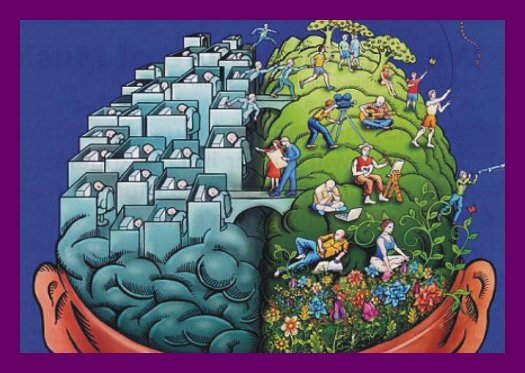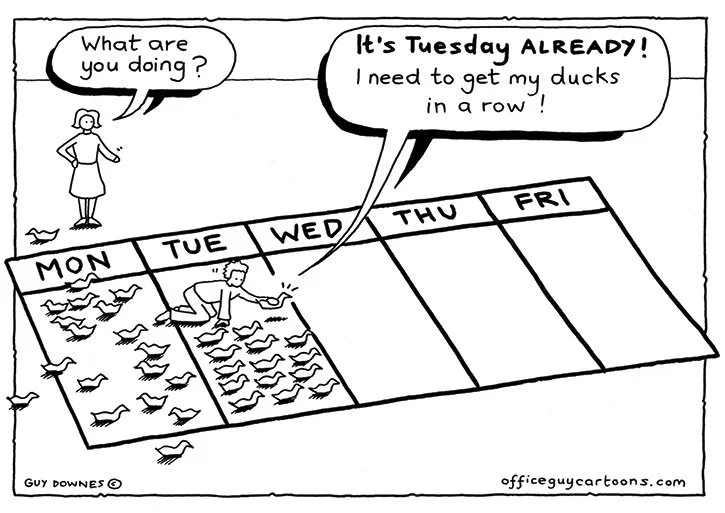Use Tools & Systems To Organise Your Life
- Ch: 4.8 of How To Get Your Sh!t Together -
“If you fail to plan, you plan to fail.” – Anonymous
If you struggle to remember plans, keep appointments, or simply track your responsibilities over extended periods of time, this post is for you, it will give you some tools and systems to help organise your life.
I know it can be frustrating and embarrassing, but the first thing that you need to do is stop being too hard on yourself. Be aware that some people simply have better memories, or were taught effective ways to plan while growing up.
I have always struggled with future planning, particularly when I am suffering from a mental affliction. The more depressed I become, the more challenging it is for me to make or remember plans for the future.
There are many applications, websites, tools and services out there that can assist, and I present here a few that I use.
A good organisational tool has to be simple to start and easy enough to use so that it still functions when a mental affliction takes hold.
Get A Monthly Wall Calendar
Far and away the best tool that I use is a monthly wall calendar. These can be found at any newsagent, stationary store, or online. As soon as I make a plan, or appointment, a small note gets written in the corresponding day’s box. Just a quick mention of the topic, time and location is usually enough to jog my memory.
I hang this planner prominently in my room so that it is easily visible. This enables me to plan the activities for each day, which is great when I am ‘Prioritising Tasks The Night Before’. I use a monthly calendar to keep track of my work, social gatherings, family events, important birthdays, doctor appointments and large house tasks. Because I can see all the days laid out at once, it is easy to see when I am free and when I am committed. If there is something in the box, I am not free. This really helps when I have a holiday, work commitment or other event that spans multiple days. Prior to having a visual planner, I ran the risk of accidently double booking myself.
I prefer to use a monthly wall calendar compared to a physical diary. Physical diaries have a few drawbacks. Firstly they can easily be lost, which is obviously problematic if you haven’t backed up your plans. But more importantly, they are not as functional. A diary that only displays one day per page (or even one week per page) doesn’t show you enough information at once. In order to make a new plan, you need to be scrolling back and forth between pages. It is easy to overlook events, forget them or double book yourself. Finally if the diary is kept in a bag, it is not immediately compelling you to look through it each day. While you may remember to check it, you may not. You are running the risk of forgetting an event.
Make sure to write down your plans immediately.
Use Your Phone As A System To Organise Your Life
Smart phones are amazing tools whose functionality should be exploited to the fullest extent to make life as easy as possible. If used right your phone could be the best system to organise your life. Most phones will come with a calendar application that enables the user to insert events, including most important details like descriptions, duration, location and start time. If you are not sure how to use this function for your particular phone, Google the phrase ‘how to use (insert phone type) calendar app’, have a play with it and enjoy the benefits. I use this tool in conjunction with my monthly planner and use the phone to remind me of the event in the day or hours preceding the event.
Once you become proficient with these applications it is tempting to use them as the sole tool to keep track of your future plans. Although it is certainly convenient, I prefer to combine it with the monthly wall calendar. Phones can run out of charge, suffer technical difficulties and be lost. It may just be a personal preference, but I find it much easier to grasp dates, plans and times when looking at the monthly calendar compared to scrolling on an application.
Carry A Pocket Notepad
I like to carry a pocket notepad with me at all times. I use it to take down quick pieces of information that I can later transfer into my phone or monthly planner. As a writer, this notepad also doubles up as an easy way to quickly write down something that has come to mind, or that I need to address or alter in a project. At the end of each day I will review what I have written, transfer it across where appropriate and then discard the pages. It is surprising how much use I get out of them, my memory is fallible but the notepad doesn’t forget!
Write A Daily Focus List
On my wall, just below my monthly visual planner, is my daily focus list. This is a small document that has the days of the week listed down the left hand side, with some tasks written beside each day. These tasks are things that I want to accomplish on that day, each and every week.
I use this system to organise my live by using it to plan a variety of tasks including: gym workouts (eg:, Monday is ‘running day’, Tuesday is ‘back day’ and so forth), work commitments (eg:, Monday, Wednesday and Friday are ‘teaching’ days’ the other days are ‘writing’ days), family time (Thursday is date day), and house work commitments (eg: ‘Vacuum on Sunday’, ‘clean cars on Tuesday’).
By having a daily focus list I am able to ensure that I schedule in some of the tasks that I may otherwise neglect or forget. But if I know that each Monday I am going for a run, then when I am planning what to do on Monday, I must include time to run.
Frequently Asked Questions
Q) I make plans but I forget to write them down. I often forget my plans and double book myself. Any suggestions?
A) You could attempt to write it down in your phone or monthly planner the moment you make the plan. This will work – if you manage to do it. In practice however it can be difficult to immediately note it down.
This is why I like to carry a notepad. When I make a plan, I will first write it down on the note pad. Then each night I will take a small amount of time (3 minutes) to look over it and transfer it to the monthly planner and phone where necessary. For this method to work however you have to get into the habit of checking your notepad each night.
Resources
The Four Hour Work Week, Tim Ferris
Summary
Visually seeing your plans all at once can help you to plan ahead and organise yourself, as well as assist you in the process of making and keeping appointments.
If this post has resonated with you, I would love your support.
Read next:
Eliminate As Many Decisions As Possible & Free Your Creativity
Only You Can Change Your Life
Read another chapter from How To Get Your Sh!t Together
Out now: eBook, Paperback & Audible
Your shadow is the gateway to a more authentic you.
This course is your guide to profound inner work. Through powerful insights, guided prompts, and proven techniques, you'll navigate your shadow, heal unresolved wounds, and reintegrate the parts of yourself you’ve long ignored.
What’s Inside:
12 x Guided Meditation & Contemplations
12 x Introspective Prompts
12 x Expansion Challenges
A comprehensive instructional PDF guidebook
Unlimited email coaching for ongoing support and personalized guidance
Explore full course details and watch intro video here!
This isn’t just about healing, it’s about meeting your shadow head-on, embracing every part of yourself, and reclaiming your full power.
Are you ready to face what’s been hidden and step into your truth?


